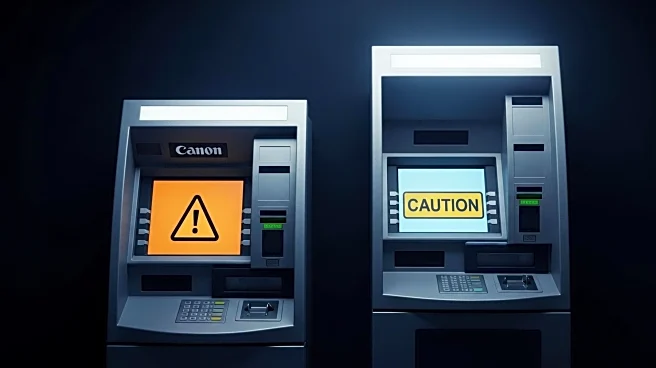What's Happening?
Bitcoin ATMs have become a tool for scammers, leading to significant financial losses for Americans, particularly the elderly. In 2024, scams involving Bitcoin ATMs resulted in nearly $250 million in losses, more than double the previous year's amount. These ATMs allow users to insert cash and send it to a digital wallet globally, making it difficult to recover funds once a transaction is completed. The FBI and AARP have raised concerns, with AARP warning its members about the increasing use of Bitcoin ATMs by fraudsters. Legal actions have been taken against companies like Athena Bitcoin, accused of profiting from undisclosed fees on scam victims. Despite these allegations, Athena and other companies maintain they have safeguards against fraud.
Why It's Important?
The rise in Bitcoin ATM scams highlights vulnerabilities in the financial system, particularly affecting older adults who may be less familiar with digital currencies. This trend underscores the need for stronger consumer protection and regulatory measures to prevent exploitation. The financial impact is significant, with millions lost to scams, affecting individuals' savings and financial security. Companies operating Bitcoin ATMs face scrutiny and potential legal consequences, which could lead to changes in industry practices and regulations. The situation calls for increased awareness and education to protect consumers from such scams.
What's Next?
Regulatory bodies and consumer protection organizations may push for stricter regulations on Bitcoin ATMs, including transaction limits and enhanced security measures. Legal proceedings against companies like Athena Bitcoin could set precedents for industry standards. As awareness grows, more states and municipalities might consider banning or regulating these machines to protect consumers. Companies may need to improve transparency and consumer education to mitigate fraud risks and restore trust in digital currency transactions.
Beyond the Headlines
The ethical implications of Bitcoin ATM scams raise questions about corporate responsibility and consumer protection in the digital age. The ease of transferring money globally through these ATMs presents challenges in tracking and recovering funds, highlighting the need for international cooperation in combating financial fraud. The situation also reflects broader issues in the adoption of digital currencies, where rapid technological advancements outpace regulatory frameworks, leaving consumers vulnerable.








